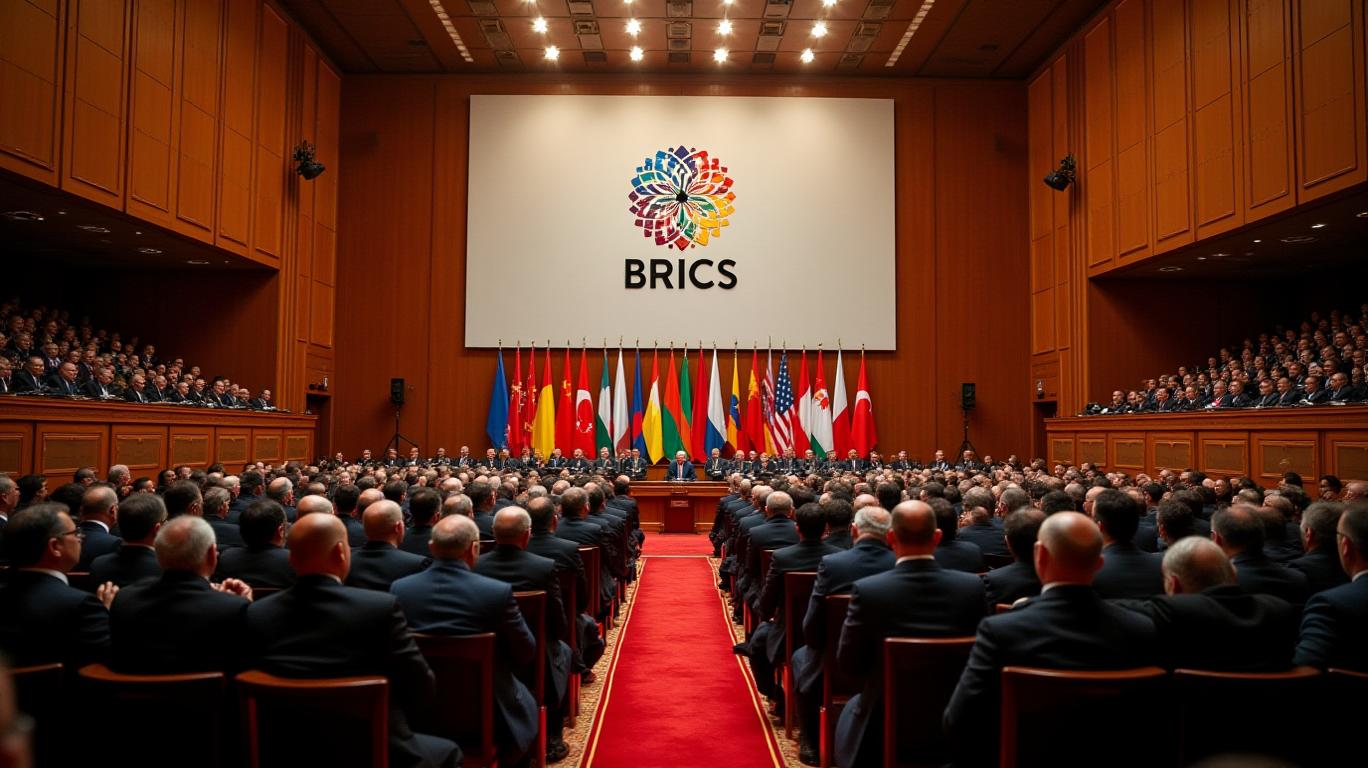BRICS Expands as Nations Seek Alternatives to U.S. Dollar
The BRICS group, which includes Brazil, Russia, India, China, and South Africa, is rapidly expanding as more nations seek alternatives to the U.S.-led global financial system. This expansion is driven by economic pressures created by U.S. tariffs, which have prompted countries to reconsider their reliance on the U.S. dollar and Western financialMYFW-- structures.
In recent months, Egypt, Ethiopia, Iran, and the United Arab Emirates have joined BRICS, significantly expanding the allianceAENT--. These new members enhance BRICS' economic and political influence, with the group now representing over 40% of the world’s population and increasing its power in global trade. The addition of countries from Africa and the Middle East strengthens BRICS' role as a major global player, as these nations bring valuable resources and strategic importance to the alliance. This shift indicates a growing trend of countries moving away from Western influence and seeking new economic partnerships with BRICS.
The U.S. President Donald Trump's threat of high tariffs on BRICS countries has accelerated the move away from U.S.-dominated financial systems. These tariffs, which could impose steep taxes on imports, have pushed countries to explore new trade methods that do not rely on the U.S. dollar. In response, BRICS nations are developing their own systems to facilitate trade independently of the U.S. and the dollar. By using local currencies or alternative methods, countries in BRICS can trade more freely, avoiding the volatility of U.S. policies. This movement is about gaining economic independence and strengthening the group’s global standing.
China, the largest economy in BRICS, has played a crucial role in mitigating the impact of U.S. tariffs on the group. By introducing zero-tariff policies for the least developed countries with ties to China, the country has helped build stronger economic relationships within BRICS. This support aligns with China’s broader goal of reducing global dependence on the U.S. and creating a more balanced economic order. China’s leadership within BRICS also drives the group toward developing new financial systems, including alternatives to the U.S.-led global payment network, SWIFT. This push for new economic systems demonstrates China’s commitment to making BRICS a viable alternative to Western financial dominance.
Looking ahead, BRICS plans to continue growing and increasing its influence on the world stage. The group is working on creating financial systems and payment methods that do not rely on the U.S. or its dollar. Additionally, BRICS is focused on resolving regional conflicts, promoting economic cooperation, and ensuring greater stability for its member countries. As BRICS grows and attracts more members, it is becoming a stronger force in the global economy. By offering a viable alternative to Western financial systems, BRICS is reshaping the future of global trade and positioning itself as a powerful counterforce to U.S. dominance.

Entender rápidamente la historia y los antecedentes de varias monedas conocidas
Latest Articles
Stay ahead of the market.
Get curated U.S. market news, insights and key dates delivered to your inbox.



Comments
No comments yet